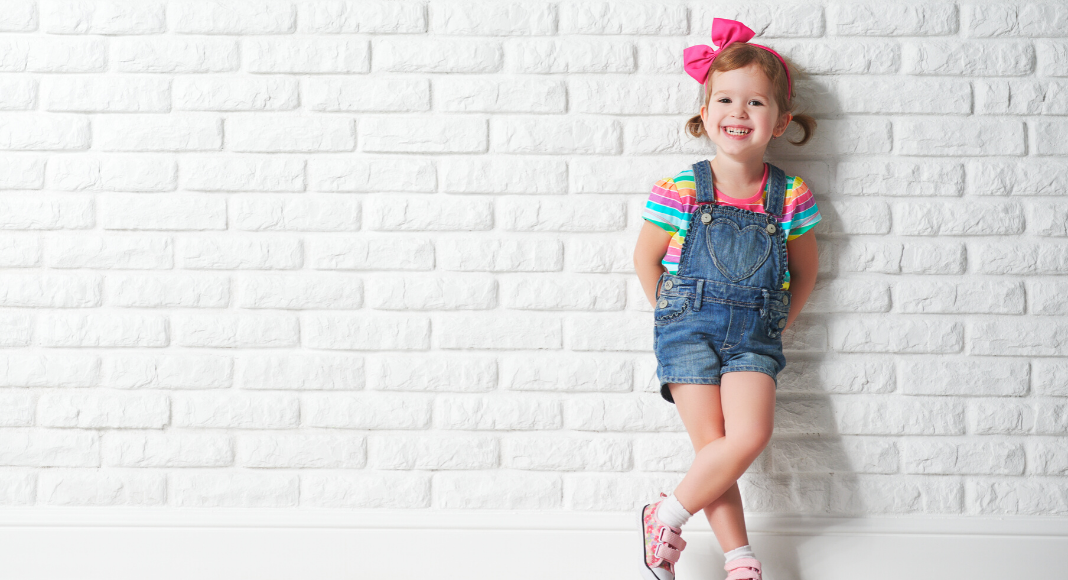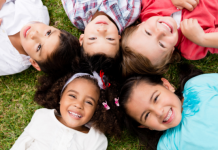 Sorry, honey, school is cancelled.
Sorry, honey, school is cancelled.
No, we cannot go to the park.
Sorry, we cannot hang out with friends.
No, you are not allowed to come with me to the store.
No, no, no. Cannot, will not, should not.
Do these phrases sound familiar to you? Things got dark and negative pretty quickly for my sweet and social three-year-old girl. Freedom, fun, and friendships were taken away, with little explanation to what was going on. She reacted the only way she knew how — through anger, acting out, accidents, and no longer being able to sleep at night. My husband and I knew we needed to make a change, but we didn’t know how.
That’s when I remembered all my training as an educator; it was time to use a positive reinforcement system to get desired behaviors and to increase morale. We all needed a boost, so incorporating a system would be very helpful to my family.
The first thing we introduced was a simple sticker chart.
Sticker charts or other reinforcement charts are perfect for children who are of toddler or preschool age. This outlines the clear expectations of wanted behaviors; children are able to be able to visualize and celebrate their successes in a positive way, rather than being constantly scolded for any negative behaviors.
Using a ruler, a pen, some computer paper, and our leftover stickers from our Easter eggs, I made a chart where my daughter could earn stickers for desired behaviors. If she got a whole line of stickers, she would get a small prize! My husband and I wrote out specific behaviors we were looking for (good manners such as please and thank you, taking a break when upset, following directions, and bathroom routine – a practice she had once mastered but had regressed), then we introduced the chart with expectations to our daughter. (Pro-tip: do not introduce the chart when your child is upset, they will get even more upset.)
We retaught our expectations of behaviors.
Positive Behavioral Intervention and Supports , PBIS, is used in schools around the nation. They have created resources to help with challenging behaviors and promote emotional health during this pandemic. An element of PBIS is to teach children how you want them to behave in all areas of the school — the bathroom, lunchroom, classroom, and outside. For us, we retaught our daughter how to use the bathroom, wash her hands, and even what is appropriate behavior when she cannot fall asleep. For example, staying in bed was never an issue with us before but it turned into one. We discussed that she can read her books in her bed with her lantern, play with her mountain of stuffed animals, or even sing songs… She can do those things as long as she remains in her bed! The lantern was a game changer, and she has been staying in her bed for the last couple of nights.
We used Love and Logic.
We started to give our daughter more grace for her behaviors – since we were struggling too. (Hence all the negativity.) We tried to turn our negative words into more neutral words- instead of “not being able to see our friends,” we discuss that we will be able to see them soon and we ask what she wants to do with her friends when we see them again. We also worked harder to include Love and Logic methods, giving choices, time to choose, and consequences to behaviors instead of being burnt out and sending her straight to her room.
Implementing more positive changes helped not only my daughter, but me as a parent. I had the darkness from “the sickness” seeping out of my skin, making a bad situation worse. It greatly impacted my girl. Our lives were turned upside-down, and it is my job as a parent to be a constant and impactful source. Being more positive and reteaching the way we lived helped us cope with the pandemic. We were able to see changes quickly. My three year old started sleeping through the night again, the accidents minimized, and most importantly…she felt safe.
















